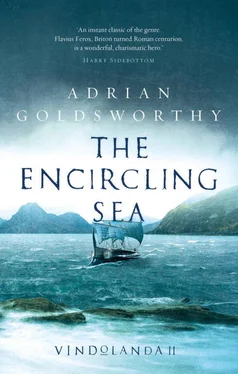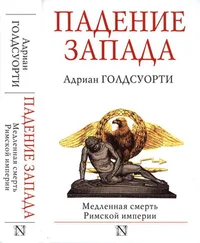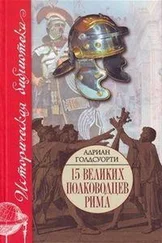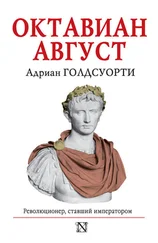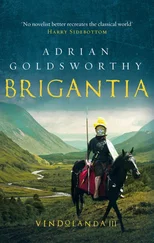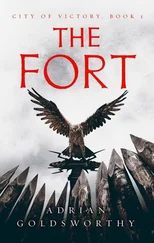Адриан Голдсуорти - The Encircling Sea
Здесь есть возможность читать онлайн «Адриан Голдсуорти - The Encircling Sea» весь текст электронной книги совершенно бесплатно (целиком полную версию без сокращений). В некоторых случаях можно слушать аудио, скачать через торрент в формате fb2 и присутствует краткое содержание. Город: London, Год выпуска: 2018, ISBN: 2018, Издательство: Head of Zeus, Жанр: Историческая проза, Прочие приключения, на английском языке. Описание произведения, (предисловие) а так же отзывы посетителей доступны на портале библиотеки ЛибКат.
- Название:The Encircling Sea
- Автор:
- Издательство:Head of Zeus
- Жанр:
- Год:2018
- Город:London
- ISBN:978-1-784-97816-7
- Рейтинг книги:5 / 5. Голосов: 1
-
Избранное:Добавить в избранное
- Отзывы:
-
Ваша оценка:
- 100
- 1
- 2
- 3
- 4
- 5
The Encircling Sea: краткое содержание, описание и аннотация
Предлагаем к чтению аннотацию, описание, краткое содержание или предисловие (зависит от того, что написал сам автор книги «The Encircling Sea»). Если вы не нашли необходимую информацию о книге — напишите в комментариях, мы постараемся отыскать её.
A FORT ON THE EDGE OF THE ROMAN WORLD cite cite
The Encircling Sea — читать онлайн бесплатно полную книгу (весь текст) целиком
Ниже представлен текст книги, разбитый по страницам. Система сохранения места последней прочитанной страницы, позволяет с удобством читать онлайн бесплатно книгу «The Encircling Sea», без необходимости каждый раз заново искать на чём Вы остановились. Поставьте закладку, и сможете в любой момент перейти на страницу, на которой закончили чтение.
Интервал:
Закладка:
‘Yes, but if we are right, he is an even more dangerous man than we thought.’
XV
THE PLACE OF the kings was vast, stretching for miles between great monuments raised long ago. Several tracks led towards the sacred hill at the heart of it all, and as they came closer the land filled with people. Most were warriors, following their chieftains, who in turn followed petty and greater kings. They wore bright tunics, tartan cloaks, helmets of polished bronze with high nodding plumes and here and there shirts of mail or scale. Many rode in chariots, first dozens, then scores and finally hundreds thundering across rolling fields awash in a sea of wildflowers. Ferox had never seen so many, or such fine teams of ponies, even though his own tribe had dearly loved such things.
‘It is like the Iliad sprung to life before our eyes,’ Ovidius said in genuine wonder. Philo was close enough to overhear the comment and showed obvious delight. Ferox was often surprised at how well read the young slave was. All the more because they had spent little time in cities or towns, let alone near libraries. Bran was simply wide-eyed, for the Novantae were not a numerous people and never gathered in such numbers.
‘It must have been like this in the old days at home,’ Vindex said softly. ‘Before the Romans came and brought us peace, of course.’ He had spoken in Latin, but did not bother to hide his wistfulness. This was a world of proud kings and folk who seemed much like his own kin. No doubt his father, or certainly his grandfather, had seen great gatherings of all the Brigantes, which must have looked much the same.
‘Were the old days always so noisy?’ Crispinus asked and grinned. Alongside the chariots and the warriors walking on foot there were trumpeters everywhere, carrying the same tall bronze trumpets they had seen at Aballava. The long curving tube came apart, so that it could be screwed up as one great curve or as an S-shape. Either way the musicians played long, throbbing notes, each taking turns to lead the group so that the sound never ceased.
It was like seeing an army gathering, save that none of the warriors carried spears or standards. A lot of men had scabbarded swords at their belts, and all carried brightly painted shields, but there was a truce for three times seven days and for the same number of miles in all directions for this festival and the raising of a new high king. Much of the time Epotsorovidus and Brennus rode in their chariots on either side of Crispinus, and bands of warriors had come to swell their following so that the Romans were part of a much bigger procession, thousands strong.
Epotsorovidus said little, his already meek spirit shattered by his wife’s abduction. If word had come asking for something in ransom, then he had not shared it with his new Roman allies. From what Brennus said and he overheard from others, Ferox suspected that without Brigita by his side, Epotsorovidus was now unlikely to be named as high king. That in itself might explain her abduction, and perhaps the Harii or Usipi, or whatever the men of the night now called themselves, were in league with a rival.
The different approach roads merged together close to where a great mound rose out of the plain, surrounded with a grassy rampart and ditch. It was a lot like many he had seen all over Britannia, although bigger than most. Men said that they were tombs of great kings of long ago or of giants, and were filled with silver and gold, but bound by terrible curses. He did not know if this was true or when they were built, but he had never seen so many close together, for others lay across the plains ahead of them, leading to the biggest of all, unless it was a real hill, even though it seemed very round and was surrounded with a similar rampart.
Even Crispinus seemed to sense something of the awe of this place, which did not stop him cursing at how long everything took. At the spot where the main paths met, lines of men dressed as animals danced to the beat of wooden drums and the blasts of the great horns. After two hours of this, a black bull and a white calf were led round and round in a circle for some time, before they were sacrificed by priests.
‘Druids?’ Crispinus whispered to Ferox.
‘Like druids,’ was the best answer he could give. He did not know why, but it had been many generations since men from Hibernia had travelled to Mona to learn the lore of the druids.
It was a little after noon, but they went no further that day and camped near the place of sacrifice. Ferox guessed that there were more than twenty thousand people in tents or lying under the stars, with the scent of the burned sacrificial animals mingling with that of many meals being prepared. He saw Vindex sniff in distaste.
‘I know,’ Ferox said, his mind dragged back to the place where Claudius Super and his men had died, ‘I know. But you have to eat.’
Probus was already known to quite a number of the chieftains and kings. He explained that he had twice sailed to Hibernia on trading ventures. ‘Horses,’ he replied when Crispinus asked what it was he wanted from the tribes. ‘You only have to look around you to see how fine their horses and ponies are. I sell mounts to the army, and this looked to be a good place to pick up plenty of fine animals at a very good price. They don’t really use money much over here, but the kings will give you a lot for wine, spices and silks.’
Half a dozen leaders came to visit Probus that evening. He rose to greet each one, led them back to sit with him around a campfire and eat roasted meat. Each chieftain was accompanied by a warrior, while Falx, the gladiator, stood silent and motionless behind the merchant, a gladius on his hip. He was taller than Ferox and a good deal broader, with the massive arms and legs that came from years of weight training of the sort only done by wrestlers and gladiators. His nose had been broken more than once, one of his ears was a mangled remnant, and there were scars on all his visible skin. The man almost never spoke, and rarely let any noise escape his surprisingly small and thin lips. When Probus gave an order it was instantly obeyed. With anyone else he was slow to the point of surliness. The falx was a two-handed sword favoured by the Dacians, curving forward like a sickle and ending in a heavy point. A skilled warrior could lop off a man’s arm, head, or even both legs with a single blow, and the name was an apt one. Falx’s eyes were small, with all the emotion of well-wrought iron. He was a weapon, and nothing else, and he was in the hands of Probus.
Ferox had been surprised when he learned that the gladiator was to accompany them, and even more surprised that once they were on the ship there was no sign of Probus being held against his will – or being closely protected for his own good, as Neratius Marcellus might have said.
‘He wants his son back,’ Crispinus assured him when Ferox raised the matter. ‘As I said weeks ago, the gods alone know why, but that’s a father’s love for you. He will do anything to bring the boy home.’
‘Anything?’
‘Be surprised if he is keen on sacrificing himself, especially given all that Ovidius has said. Doubt these pirates have anything too pleasant planned for him. He’ll try to free Genialis and get away, and I doubt that he will care too much about the prefect and his wife if it comes down to a choice. With his sort of money, he can always disappear somewhere in the empire, or even beyond it.’
‘What is to stop him slipping away from us, my lord?’
‘Too soon for that. Reckon he will want our protection for a while yet, so I should not think that he will wander off until word arrives about the exchange. Even then, he might decide that he is better off sticking with us and trying to plan his way out at the last minute. I’d be much obliged if you kept a close eye on him. At least that great lump of a fighter shouldn’t be able to vanish too easily.’
Читать дальшеИнтервал:
Закладка:
Похожие книги на «The Encircling Sea»
Представляем Вашему вниманию похожие книги на «The Encircling Sea» списком для выбора. Мы отобрали схожую по названию и смыслу литературу в надежде предоставить читателям больше вариантов отыскать новые, интересные, ещё непрочитанные произведения.
Обсуждение, отзывы о книге «The Encircling Sea» и просто собственные мнения читателей. Оставьте ваши комментарии, напишите, что Вы думаете о произведении, его смысле или главных героях. Укажите что конкретно понравилось, а что нет, и почему Вы так считаете.
